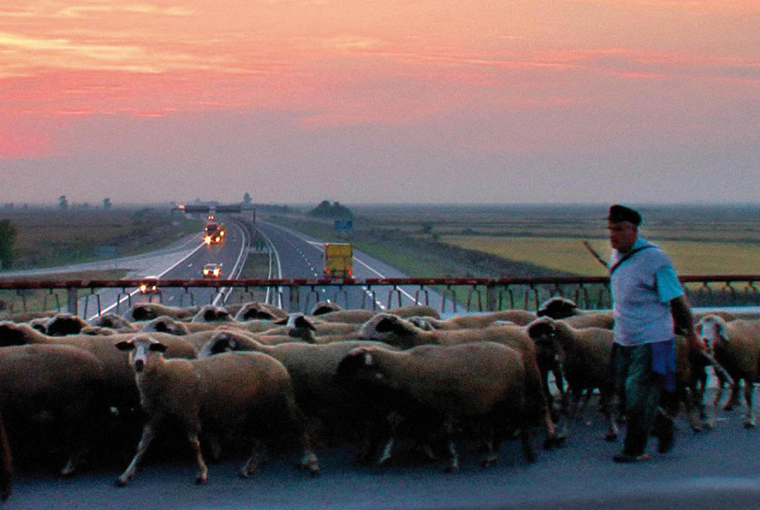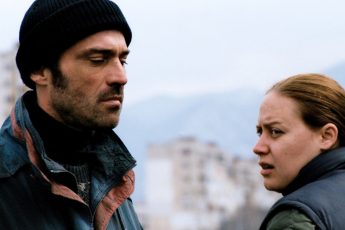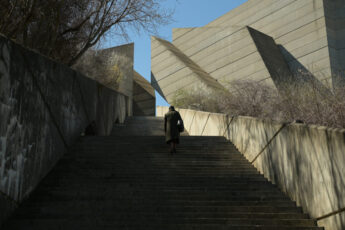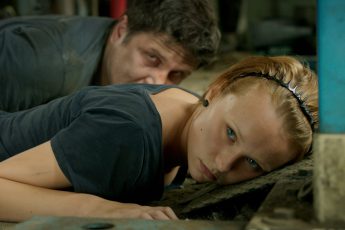
Corridor No. 8 was an infrastructural project launched by the European Union in 2007 to connect the Black Sea to the Adriatic. The documentary travels along this planned railway from Bulgaria through Macedonia and Albania, three Balkan countries that have been isolated from each other for years, and that were meant to reconnect through Corridor No. 8. The film begins with the opening ceremony of a section of highway in Bulgaria. The prime minister of Bulgaria speaks from a stage decorated with white and blue balloons to a crowd that seems hardly interested, but that fulfills its role by clapping conscientiously. After the event, several bystanders are seen chasing the balloons down the newly paved road. The camera gets caught up with a bearded Bulgarian who begins telling us about the reality in Bulgaria, his rather skeptical opinion of Albanians, and his work as a gravedigger. We leave the man with a shot of his fake Hugo Boss sweat-shirt, and the story continues with a local businessman in Bourgas, Bulgaria.
In this way, Boris Despodov explores the hierarchy of people who are involved in Corridor No. 8 – or affected by it -, thus generating a versatile image of the region. Of course, like in the beginning of the film when the Bulgarian prime minister holds his speech, the authorities and the people living along the route of Corridor No. 8 remain two parties with a stony crossroad. Roughly one hour into the film, Despodov shows us a scene where these two roads do seem to meet: the president of a construction company commissioned with a job on Corridor No. 8 near a small town in Albania gets together with the local people to straighten things up, but only a handful of the villagers arrive. The scene seems so forced that it is hard to judge whether the clapping and nodding of the villagers is really a reaction to the self-assured promises of the businessman, or rather caused by previous agreements between the two parties due to the presence of a camera.
In fact, it is hard to draw firm conclusions from this film. The European Union canceled the project the same year it was launched, and although there has been a new project in development since to partially replace the former plans, this fact leaves numerous questions open at the end of the film. Despodov seems to want to tell us that the plans of the EU do not reflect the actual reality in the region. It is not even corruption or the economic situation of the three countries that the film focuses on, but simply the people. The film shows us the image of three countries that – in spite of their proximity – have been separated from each other for decades due to their history; a situation that the European Union seems to have underestimated. Still, in this case, it is not a wall that is supposed to separate regions from one another, but a road that is supposed to connect them, and one should thus ask whether we should be critical, or rather hopeful of the success of such a project…




Leave a Comment